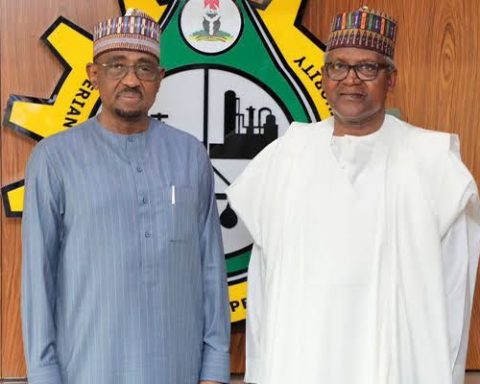The Big Tent Shadow Cabinet has called on the Federal Government (FG) to abandon what it described as “flashy, headline-grabbing projects” and redirect funds to revamping Nigeria’s failing healthcare system.
In a detailed policy proposal, the group led by political economist Prof. Pat Utomi criticised recent multi-billion-dollar projects including the $11bn Eko Atlantic to Calabar Highway, the $4bn Lagos–Abuja Super-Highway, the $60bn Lagos–Abuja High-Speed Railway, and the planned $100m presidential jet arguing that while these may serve the elite, they do little for the over 220 million ordinary Nigerians struggling to access quality healthcare.
Join our WhatsApp ChannelREAD ALSO: Economic hardship and insecurity create challenges for Kasire residents
Citing World Health Organisation (WHO) data, the group noted that Nigeria’s life expectancy stands at just 62.2 years, a stark 11.5 years below the global average of 73.7. Some estimates put the figure closer to 56 years. Even more alarming, Nigeria’s maternal mortality rate 993 deaths per 100,000 live births and its under-five mortality rate of 117 per 1,000 live births (meaning one in eight Nigerian children dies before their fifth birthday) rank among the worst in the world.
READ ALSO: BUA Foods Secures N470.21bn Revenue In Three Months
“These are horrendous statistics and make it plainly obvious that we face a healthcare crisis,” Utomi said, stressing that education and healthcare remain the two most critical investments for national prosperity.
The Big Tent proposal sets out a bold 10-year roadmap to raise Nigeria’s life expectancy by 16 years to 78, primarily through a comprehensive overhaul of the primary healthcare system. The plan focuses on eliminating or significantly reducing eight of the country’s deadliest causes of death neonatal disorders, malaria, lower respiratory infections, diarrhoeal diseases, HIV/AIDS, hypertension, sickle cell disease, and road traffic accidents.
Among its recommendations are:
- Free antenatal and postnatal care, vaccinations for all children, and family planning with incentives for mothers.
- A national malaria elimination campaign employing 200,000 undergraduates alongside free malaria treatment.
- Free care for pneumonia, tuberculosis, diarrhoeal diseases, cholera, and typhoid.
- Mandatory free HIV testing for students, pregnant mothers, and applicants for passports, licences, and marriage certificates.
- Free testing and lifelong treatment for HIV/AIDS patients.
- Mandatory genotype listing to curb sickle cell cases.
Trauma care funded by motor insurance for accident, gunshot, and burn victims, with at least one hospital per LGA fully equipped for such emergencies.
READ ALSO: Between Buhari and Tinubu, who is a better President?
The shadow cabinet also stressed the urgent need to resuscitate and adequately equip Nigeria’s 30,000 Primary Healthcare Centres (PHCs), staffing them with trained personnel and providing facilities such as electronic health records, AI diagnostic tools, telemedicine, and community-based health campaigns.
To build workforce capacity, the group proposed training 60,000 nurses and midwives, 30,000 community health workers, and offering scholarships to medical students willing to serve in rural areas. It also called for incentives to retain doctors and nurses, alongside diaspora mentorship programmes to strengthen knowledge transfer.
On funding, Utomi argued that the government must reprioritise by halting extravagant infrastructure spending and redirecting trillions currently used for debt servicing into healthcare, education, poverty alleviation, and security.
“The bottom line is clear: Nigeria cannot afford to keep pouring billions into prestige projects while its citizens die needlessly from preventable illnesses. Redirecting funds to healthcare is not just a moral duty, it is an economic necessity because a nation where one in eight children never reaches their fifth birthday cannot truly prosper. The choice before the government is simple: build monuments for the wealthy, or build a future for every Nigerian,” Utomi concluded.
Amanze Chinonye is a Staff Correspondent at Prime Business Africa, a rising star in the literary world, weaving captivating stories that transport readers to the vibrant landscapes of Nigeria and the rest of Africa. With a unique voice that blends with the newspaper's tradition and style, Chinonye's writing is a masterful exploration of the human condition, delving into themes of identity, culture, and social justice. Through her words, Chinonye paints vivid portraits of everyday African life, from the bustling markets of Nigeria's Lagos to the quiet villages of South Africa's countryside . With a keen eye for detail and a deep understanding of the complexities of Nigerian society, Chinonye's writing is both a testament to the country's rich cultural heritage and a powerful call to action for a brighter future. As a writer, Chinonye is a true storyteller, using her dexterity to educate, inspire, and uplift readers around the world.











